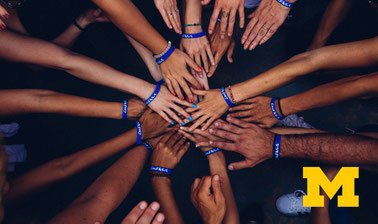Acknowledging Privilege
In this video, a U-M graduate student explains how one’s power and privilege are relative and depends on both the social identities of said individual and the positionality and identities of those the person is working with.
Excerpt From

Transcript
Knowledge is power, and power always has knowledge. So power is very complex. Power is also a relation, something that moves. You might have it now and I might have it later. I have power in certain areas, they have power too. In their own territories and in their own idea. So, I came from the university. I came from the Arts. So I came from a very privileged place. In the history of how the world is taught. Because the artist is this being that is able to see the world and produce an enlightened version of it. Or of what he sess about the world. Has a very privileged position, we get to describe something other folks want. That's the part we are invested with, in theory, by History. We have to rebel against history. Because this history in Latin America, this conception of our, this conception of ideology. Is the one that is Western. And we're not gonna say we're not western, but colonization brought other things too. So you have to be sort of knowledgeable of the history that you are enacting in yourself. So coming from the arts, coming from that community has a whole history. It has big implications of what things I am allowed to do, and things I'm not allowed to do. So for me, was like first, I never said none of this is true. I'm actually a very humble being who just was born yesterday. I never lied about anything. And you have to sorta embrace who you are and from where you come from in a very critical way. So, if you come from a position of privilege, in this case, not that my family is rich, nothing like that. I was able to have an education and they didn't. I'm not a displaced person, and they are. I have certain privileges, and I also come from a place that has been privileged by history to say things. So, in a way you have to be honest about that. You have to be ethical about it. You have to say, okay, this is who I am, this is where I come from. Don't pretend to be something you are not. That's essential.